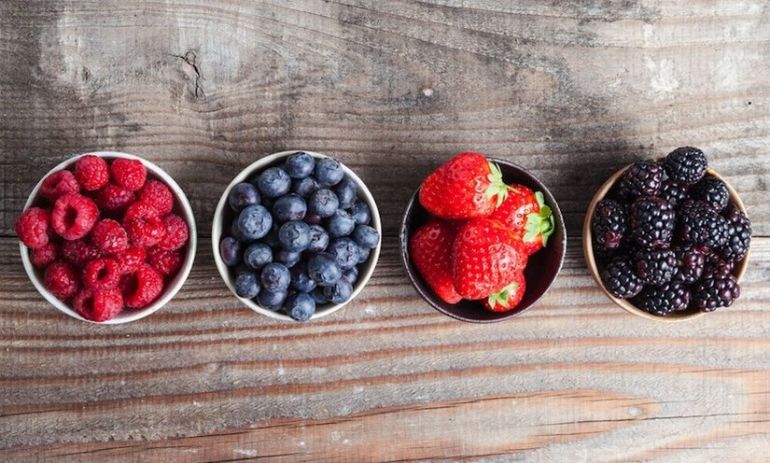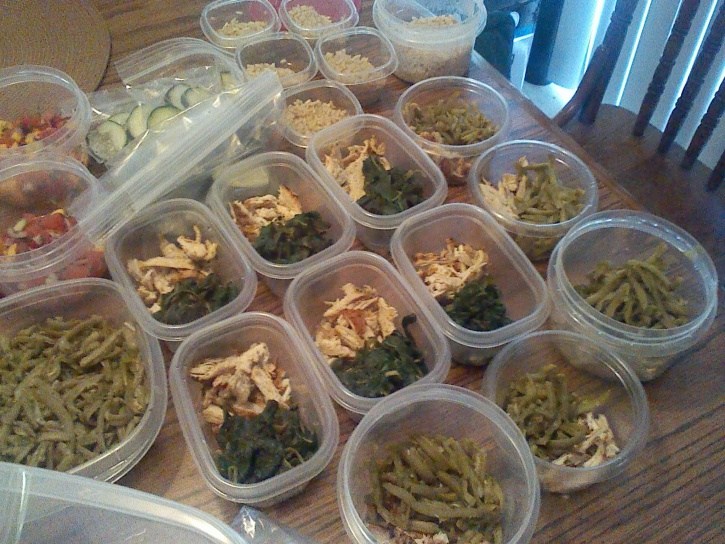Why You Dont Need To Count Calories Ever Again

Get Dr. Frank Lipman's 14-Day Plan to feel good again.
Preview latest class for free

If you think that a calorie is a calorie—and it doesn’t matter if it comes from kale or cookies, then it’s time to rethink what you think you know about calories. Contrary to what your Momma, track coach, or even doctor led you to believe, all calories are NOT created equal, and thinking you’ll lose weight simply by counting them or cutting them will likely leave you hungry, irritable, malnourished and not much lighter than you were when you started. So instead of slashing and burning the caloric field, let’s level it with the following food for thought:
1. All calories are not created equal.
Thinking that all calories are the same is an antiquated notion. Granted, by definition calories represent units of energy provided by a particular food, but thinking they’re all alike is like saying a diamond and a rhinestone are the same because they both glitter. With calories, as with diamonds, it’s the quality that matters most and enhances their value.
2. Crap is crap, no matter how many calories are involved.
Calories from nutrient-rich foods versus nutritionally-bankrupt ones from processed or refined carbs will have different effects on the body. Healthy, nutrient-rich foods will keep hunger at bay, help maintain stable blood sugar levels, minimize cravings, and enable your brain to signal your belly that it’s full. Nutrient-poor foods will have the opposite effect, wreaking hormonal havoc, spiking insulin, setting off cravings, dulling satiety signals and encouraging overeating. In other words: nutrient dense foods help keep weight in check naturally, no calculator required.
3. Think of counting calories as nutritional navel-gazing
Tracking every scrap that goes in your mouth may give you a feeling of control over your food but it doesn’t mean you’re getting enough of the nutrients your body needs. Take for example those who eat processed, portion-controlled, “diet” microwaveable meals. (You know who you are!)
Aside from being loaded with chemicals, GMOs, allergenic and inflammatory ingredients, these crappy excuses for food don’t deliver enough protein, fiber, good fats or even volume to make you feel full, much less healthy and vibrant. The result is that you’re hungry, mentally foggy, and malnourished, possibly setting the stage for a host of health problems down the line—but you do know how many calories you ate getting there. For what that’s worth.
4. But Jared lost all that weight eating Subway!
No disrespect, but if you’ve seen the before and after photos, you have to ask: Just what was Jared living on before he went on his infamous crash sandwich diet? Call it what you will, but all he did was classic caloric restriction, and yes, while it does work for a time, it’s not recommended. It’s hard to sustain in the long-term, and it won’t make you feel energetic or vibrant in the short-term, because you’re not supporting your body with enough essential nutrients. Worse, these crash diets actually slow metabolism, an adjustment your body makes to conserve energy and prevent starvation.
So what’s the work-around? Trade hunger, calorie-counting and denial, for filling, nutrient-dense, organic or local produce, poultry, pasture-raised meats and wild fish. Eat them until you are full, not until you’ve hit some abstract, virtually meaningless magic number. By eating these kinds of foods, your body will tell you when you’ve had enough. Eating refined carbs like wheat, grains and sugar—the crystal meth of the supermarket aisle—never will.
5. Put away the abacus and fill up on the right stuff.
To curb appetite, feed your body with foods that fill your belly, send the message of satiety to the brain and supply the body with health-enhancing nutrients. There is abundant evidence to show that low-carb diets generally satisfy far more effectively than high-carb ones. At the top of the satiety superstar list are the “good” fats like coconut oil, avocados, nuts, wild fish and grass fed, organic meats, which help balance hormonal and metabolic responses, in addition to being delicious additions to any plate.
Next up: non starchy vegetables, which are nutrient dense, while adding belly-filling bulk. And last but not least, is protein, which is extremely helpful in creating feelings of satiety and takes more energy for the body to metabolize. Bottom line, all three will help reduce appetite with little effort, blood sugar spikes and no counting. All you need to do is enjoy them. To whip your fridge into shape quickly, easily and healthfully, checkout the essentials of a fantastic diet here.
Photo Credit: Shutterstock.com
-
Fast Weight Loss Tips
Fast Weight Loss TipsYou are overweight for the most simple of rea
-
Your Ultimate Guide on Natural Weight Loss
Over the years, how many diet plans, exe
-
Your Thoughts Our World
Copyright 2005 John BlenkinWe get more information about what happ
-
Weight loss: Feel full on fewer calories
Feel full on fewer calories? It might sound like another gimmi
-
What You Need To Find Out Before You Buy The Diet Solution Program
If perhaps you happen to be thinking about getting rid of one or two p
-
Strategies For Shedding Pounds And Feeling Good
Today, weight loss is becoming an emerg
- DON'T MISS
- 9 Free Metabolism Boosters
- Ei Ta Mei Weight Loss Review
- A Different View On Fat Burning Exercises
- Essential Dieting Weight Loss Tips
- Facing Your Fears Can Help You Lose Weight
- a few Time-Tested Tactics To Shed Belly Fat Quick And Get Flat Shredded Abs
- Weight Loss Secrets You Have to Know About
- Select Weight-loss Friendly Foods while Dining Out
- Definition: Daily Calorie Intake
- The Hazardous Truth: What’s Really In Your Tea




